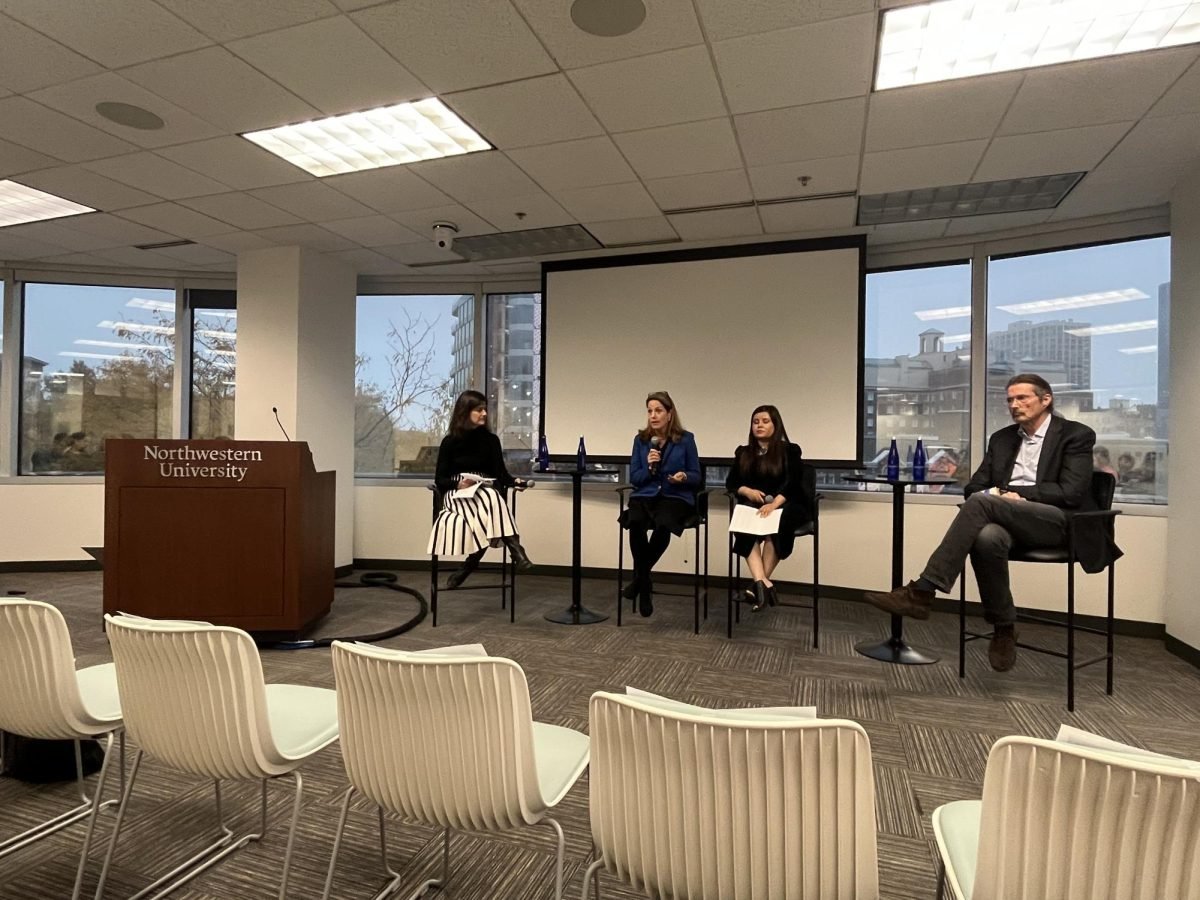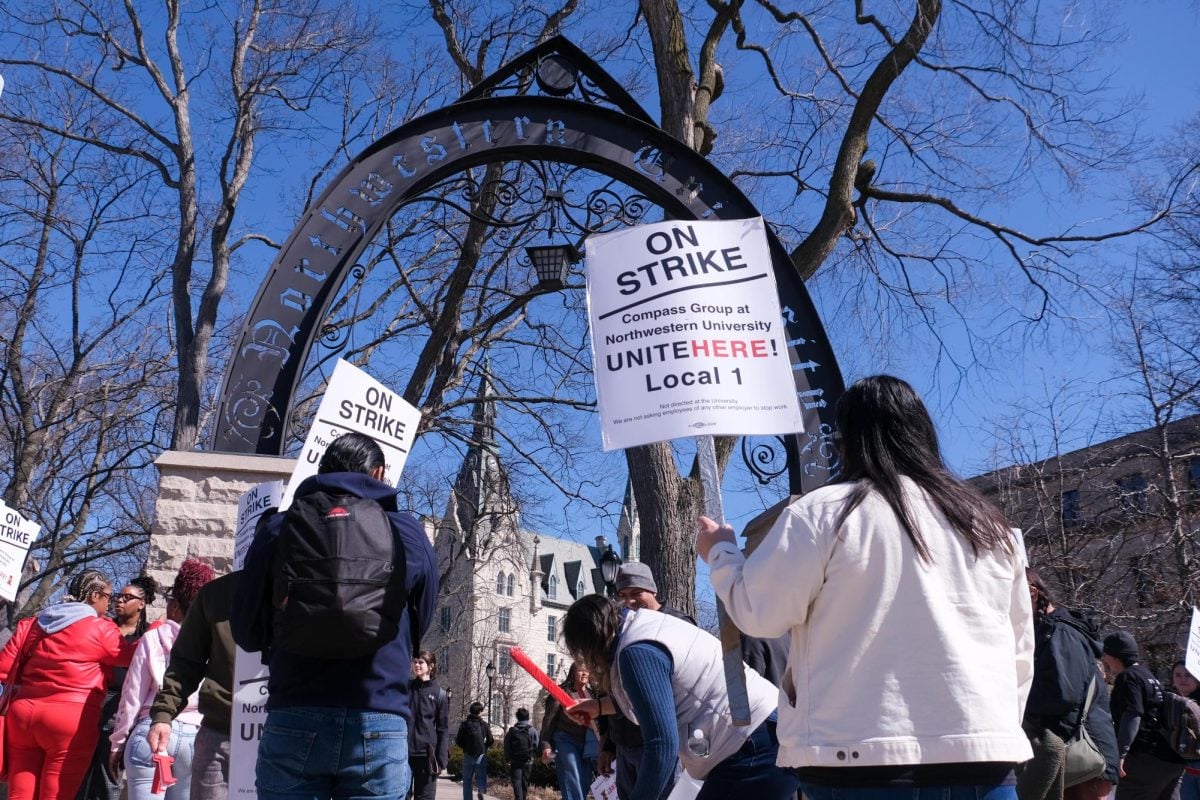The Buffett Institute for Global Affairs hosted a panel on the current state of women’s rights in Afghanistan on Wednesday.
The event featured three prominent experts on women’s rights in Afghanistan – Najia Mahmodi, former Chief Prosecutor for Elimination of Violence Against Women; Martin Smith, PBS Senior Foreign Correspondent for “Frontline”; and Alice Thomas, Executive Director of the Central Asia Institute.
At the event, the three experts contextualized Taliban beliefs, analyzed current U.S. relations with the Taliban and offered suggestions for the prosecution of Taliban officials.
Mahmodi said the Taliban’s interpretation of Islamic law differs from other countries, and that this extreme interpretation primarily serves their political interests.
“When you have an uneducated society, it’s very easy to rule,” Mahmodi said. “When you have an open-minded and educated society, it’s really hard.”
Afghanistan achieved women’s suffrage in 1919, one year before the United States. But under the first Taliban government between 1996-2001, women were not allowed in Afghanistan’s parliament.
However, this changed under social reforms from 2001 and 2021 aimed at improving women’s rights. By 2021, women made up about 27% of parliament members.
But after the U.S. withdrew troops from the country in 2021, the Taliban regained control and eradicated previous reforms based on their strict interpretation of Islamic law.
Under current Taliban rule, women are banned from going to secondary school, leaving the house without a male chaperone, accessing healthcare delivered by men and speaking publicly. They are also barred from working except as teachers and healthcare providers.
According to Mahmodi, many Taliban leaders send their daughters to foreign schools while depriving educational privileges to their citizens.
Meanwhile, Smith criticized U.S. foreign policy for engaging with the Taliban. He noted that the U.S. strategy of seeking social policy concessions from the Taliban in exchange for humanitarian aid has proven ineffective in producing change for women’s rights.
“We can engage with the people of Afghanistan without engaging with the Taliban,” he said. “The Taliban does not react to pressure from the West. A better approach is to go around the Taliban.”
Smith says providing humanitarian aid through civil society organizations like the Central Asia Institute is a better solution. The organization builds schools for girls, trains teachers to work in these schools and helps women start businesses in Afghanistan.
A former domestic violence prosecutor in Afghanistan, Mahmodi suggested that the international community pursue legal action against Taliban leaders.
“The international community should recognize the gender apartheid in Afghanistan, and the Taliban should be brought to the International Criminal Court (ICC) to be held responsible for the crimes they committed,” Mahmodi said.
As the world is confronted with worsening human rights situations for women and girls in Afghanistan, Thomas echoed the need to provide support to organizations on the ground in the country.
“You can create a movement of your own through gathering people together that have a similar interest, and there are amazing things that you could do,” Thomas said. “There are so many Afghans in the community here, so you could meet them, support them and have events.”
Email: isaiahsteinberg2027@u.northwestern.edu
Twitter: @IsaiahStei27
Related Stories:
— Pritzker School of Law awards Global Jurist of the Year Award to all women judges in Afghanistan
— The “very radical stance”: A history of women’s suffrage in Evanston
— NU College Feminists hosts reproductive justice panel discussing intersections of justice







